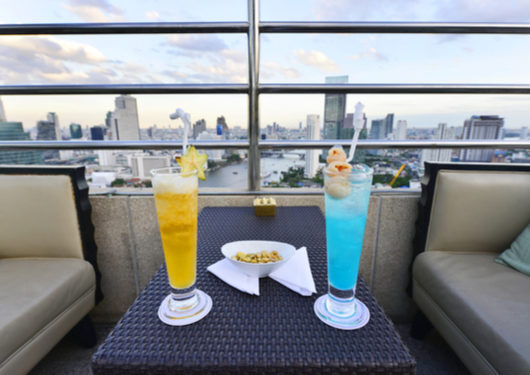
Visit Our Sponsors |
|
|
|
|
|
|
|
|
|
|
|
|
|
|
|
|
|
|
|
|
|
|
|
|
|
|
|
|
|
|
|
|
|
|
|
|
|
|
|
|
|
|
|
|
|
|
|
|
|
|
|
|
|
|
|
|
|
|
|

To help keep track of those products’ impact, Hilton created a proprietary platform called LightStay that analyzes and displays a hotel’s energy, water, and waste performance. It’s part of the company’s social responsibility strategy, called Travel with Purpose. Last year LightStay won an Environmental Leader award. One judge commented, “The company not only had the vision to have ambitious sustainability goals, but developed and effectively implemented LightStay as the enabling technology to achieve them.”
Travel with Purpose also inspired the creation of Meet with Purpose, a program to help professionals reduce waste while incorporating health and wellness into their meetings and events. Recently we spoke with Verstraete to learn about Hilton’s sustainability strategy for food, including sourcing and menu design.
What is Hilton’s current environmental strategy, especially around waste?
We try to leverage our global footprint by driving local solutions. If we can do one thing across the majority of our footprint, we can have a big impact. We look at energy, water, and waste. When it comes to waste, we’ve been focusing not only on reduction, but also better management. It becomes difficult to continuously reduce your waste output. However, there is opportunity through better recycling, donation programs, repurposing.
One of the areas we’ve been focusing on for the past couple years through our partnership with the World Wildlife Fund is food waste, the biggest waste stream in our operations. We’ve been doing pilots around the world to figure out how can we better separate our food waste, measure it when possible, compost it, or install food digesters — and what are the countries with laws that allow our hotels to donate food safely.
Where and how is food waste generated in hotels?
The buffet is an area where we see issues with over-production. The other is our menus for events. You’ll talk to folks in the field and they say, “For my guests, the buffet must always look like it’s full and the food is fresh.” When you’re talking to meeting planners, one of the worst nightmares for them is that a client’s event runs out of food. Third-party meeting planners might be over-ordering.
RELATED CONTENT
RELATED VIDEOS
Timely, incisive articles delivered directly to your inbox.


